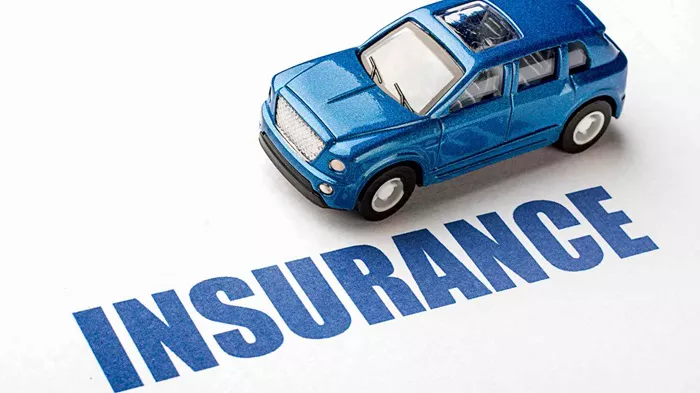Workers’ compensation is a system that provides medical care and wage replacement to employees who get hurt or sick because of their jobs. In New York, most employers must have workers’ compensation insurance. This is true even if they only have one employee. But there are a few exceptions. Some people and business types are not required to carry or be covered by this insurance. These people are called “exempt.”
Who is exempt from workers compensation in ny? Understanding who is exempt from workers’ compensation in New York can help both workers and business owners. For employees, it helps you know your rights. For business owners, it ensures you follow the law and avoid penalties.
This article explains the groups that are exempt from workers’ compensation in New York. We’ll break it down in simple terms, so you don’t need to be a legal expert to understand.
What Does Workers’ Compensation Cover?
Before getting into who is exempt, it’s important to understand what workers’ comp covers. In New York, this insurance helps pay for:
Medical bills after a work-related injury or illness
Lost wages if the injury prevents the employee from working
Rehabilitation costs, if needed
Death benefits to the family if an employee dies due to a job-related cause
The goal of the system is to protect both employers and workers. Employers are protected from lawsuits, while workers get financial help after a workplace injury.
But again, not every worker is covered. Let’s look at who is not required to carry this insurance in New York.
Who Is Exempt from Workers’ Comp in New York?
1. Sole Proprietors with No Employees
If you are a sole proprietor in New York and you do not have any employees, you are not required to have workers’ compensation insurance. You can still choose to buy coverage for yourself, but it’s optional.
For example, if you run your own handyman business and do all the work yourself with no helpers, then you are exempt. But the moment you hire someone to help—even part-time—you must get coverage.
2. Partners in a Partnership
Partners in a business partnership who do not have employees are also exempt. Like sole proprietors, they can choose to get workers’ comp for themselves but are not required to.
If the partnership hires employees, then the business must carry workers’ comp for those employees.
3. Certain Corporate Officers
If a corporation has no employees other than the corporate officers, and those officers own all the stock, they may be exempt. But they must file an exemption with the New York Workers’ Compensation Board. If they do not file, they will not be considered exempt.
This exemption only applies to officers who truly own and operate the business. If the corporation has other employees—even family members—the exemption does not apply.
4. Members of a Limited Liability Company (LLC)
In New York, members of an LLC may also be exempt from workers’ comp if the LLC does not have employees. But like corporate officers, they must file the proper paperwork with the state.
If an LLC has outside employees, it must provide workers’ comp for those workers.
5. Independent Contractors
Independent contractors are not considered employees under workers’ compensation law. That means businesses do not have to provide workers’ comp coverage for them.
However, just calling someone an independent contractor is not enough. The state looks at the nature of the relationship. If the person works under the direction of the business, uses the business’s tools, and works set hours, they may be considered an employee. If that’s the case, workers’ comp is required.
To be truly exempt, an independent contractor must be in business for themselves and control their own work.
6. Volunteers for Nonprofits
Volunteers who help nonprofit organizations without pay are generally exempt. This includes people who help at churches, food banks, or community events. Since they are not paid employees, workers’ comp is not required.
However, if the nonprofit provides a small stipend or other benefits, the state may view the person as an employee. In that case, coverage could be required.
7. Domestic Workers Working Less Than 40 Hours a Week
Domestic workers, such as housekeepers or babysitters, are exempt if they work less than 40 hours per week for one employer. If they work more than 40 hours, the employer must provide workers’ comp.
Also, if the worker lives in the home, even part-time, they may be considered full-time and the employer could need coverage.
8. Clergy and Members of Religious Orders
In most cases, members of religious groups, such as priests, ministers, or monks, are not required to be covered by workers’ compensation in New York. This is because their work is usually considered a religious calling rather than employment.
However, if a religious group hires staff for cleaning, office work, or cooking, those workers may still require coverage.
How to Apply for an Exemption
Being exempt from workers’ compensation is not automatic in most cases. You need to file the correct forms with the New York Workers’ Compensation Board. The process depends on your business type.
Here are the general steps:
Identify your business structure (sole proprietorship, partnership, corporation, LLC, etc.).
Confirm you have no employees.
Visit the Workers’ Compensation Board website.
Complete the correct exemption form.
Submit it to the board and keep a copy for your records.
If your situation changes—like you hire someone—you must update your status and get coverage.
Why It’s Important to Know If You’re Exempt
Understanding whether you are exempt can save you money and trouble. If you are truly exempt, you don’t need to spend money on insurance you don’t need. But if you should have coverage and don’t, you could face:
Fines from the Workers’ Compensation Board
Lawsuits from injured workers
Criminal charges in serious cases
That’s why it’s always good to double-check your status and keep proper records.
Even if you’re exempt, you may still want to buy insurance for yourself. Work injuries can happen to anyone, and without insurance, you could be stuck paying large medical bills out of your own pocket.
When Exemptions Can Be Risky
Just because you can be exempt doesn’t mean you should be. For example:
A sole proprietor working in construction may still face major risks on the job.
An LLC member who works with power tools or heavy machinery may want coverage even without employees.
Independent contractors who rely on one client may be at risk if they are hurt on the job.
You should always weigh the risks of your job and think about how you would pay for injuries or lost income. Even one accident could cause big financial problems.
Conclusion
Workers’ compensation is a key part of protecting workers in New York. But not everyone needs it. Some people and businesses are legally exempt. These include sole proprietors, partnerships with no employees, certain corporate officers, LLC members, independent contractors, nonprofit volunteers, and part-time domestic workers.
Still, being exempt does not mean being safe. Many people choose to get coverage anyway, just in case.
If you think you might be exempt, always double-check with the New York Workers’ Compensation Board or a licensed insurance agent. Laws change, and every situation is different.
In the end, it’s better to be informed and protected than to take chances. Knowing your exemption status can help you stay legal, save money, and protect your future.
Related topic:
Is Workers’ Compensation Insurance Required in the USA?
Where Do I Get Workers’ Comp Insurance?
Who Pays for My Health Insurance While on Workers’ Compensation?






















